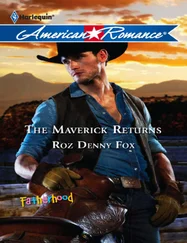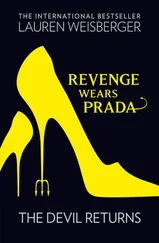“So you’re sure you never heard that?” Michael said.
“I never said I never heard it. I said it came from bad sources. If I was to start believing everything I hear from bad sources, I’d never-” he said. “Jesus Christ, Mikey. This is your brother. He may have done some stupid shit and beat up a fag and all, but I can’t believe you think he maybe is one. This is Fredo we’re talking about, right? Curly hair, yay tall? Spends all his money on abortions and jewels, married to a fucking movie star- is that the guy you mean? I tell you what I got from a good source. That doctor you guys have out there? Segal? He told me that even after Fredo started up with Deanna Dunn, he knocked up a showgirl. Marguerite something. French, as in va-va-voom. Does that sound like fag behavior to you?”
Michael remained blank.
He’d given Fredo a chance to distinguish himself, and what happened? More boozing. More knocked-up showgirls. Michael wasn’t sure what Fredo was trying to prove by running off and marrying that Hollywood puttana. Though if anything can make a man more of a man, it’s marriage. Also, there’s a certain public image value right now to having a Corleone married to a movie star, even one whose best screen years were behind her. So he had to give Fredo that.
“Want to know something?” Pete said. “I’m going to tell you something whether you like it or not. It was you your pop worried about. In that way. For a while there.”
Michael leaned over and turned on the radio. Clemenza wasn’t telling him anything that Michael hadn’t heard directly from his father. For miles, neither Michael nor Clemenza spoke.
“Bocchicchios,” Clemenza finally said.
“What?” Michael said. They’d been silent long enough that Michael had progressed through several dozen other topics. “What about them?”
“What a fucking thing they got going, that’s all. How would a person-especially guys as dumb as your typical Bocchicchio-ever even think up a service like that?”
“If something’s your destiny, maybe you don’t need to think,” Michael said. “You just need to listen.”
“Listen how do you mean?”
“If anyone I know ever found his destiny, it’s you, Pete.”
Clemenza furrowed his brow and considered this. Then his face broke into a grin. “Hark!” he said. “I think I hear destiny calling!” He arched his eyebrows in mock surprise and cupped his hand around his left ear, as if straining to hear some noise coming from the woods. “ Pete, ” he said in a stage whisper. “Pull over and take a leak.”
Nick Geraci remembered the crash and everything up to the point where he’d gone into shock and passed out in the water. There was probably a way of finding out now whose fingers he’d pried off and broken, but he hoped he’d never know.
He’d been unconscious the whole time he’d been in the hospital and for several days after that. When he finally woke up, he found himself in a lemon yellow room so tiny the twin bed he was in nearly filled it. His leg was in a cast and rigged to a pulley screwed to a beam in the ceiling. Light streamed in from a pair of French doors, beyond which there seemed to be a balcony. This was no hospital, but he was hooked up to all kinds of hospital equipment. He stared at the ceiling, trying to reconstruct the events that had brought him here. Wherever here was.
Many, many doctors are Jewish, of course, but when the first person Geraci saw after he woke up in that room was an obviously Jewish-looking old man with a stethoscope, Geraci assumed-ridiculously, he knew even at the time, but also, as it turned out, correctly-that wherever he was, it was by the grace of his godfather, Vincent “the Jew” Forlenza.
“He’s awake, geniuses,” the doctor called back over his shoulder. From the next room came the sound of chairs sliding back from a table and someone dialing a phone.
“Who are you?” Geraci muttered. “Where am I?”
“I’m nobody,” the doctor said. “I’m not even here, and, if I were to venture a guess, neither are you.”
“How long have I been here?”
The doctor sighed and gave Geraci a series of quick tests and a rundown on his injuries. Geraci, reading between the lines, guessed (once again correctly) that he’d been in this room for less than a week. What hurt the most was Geraci’s ribs, but he’d broken them enough times to know it was nothing. Same with the nose. The doctor took Geraci’s leg out of traction. “The only thing I’m worried about long term,” the doctor said, “is that concussion. Not your first, was it?
“I boxed,” Geraci said.
“So you did,” said the doctor. “And, if you’ll forgive me for saying so, not that well.”
“You saw me fight?”
“I never saw you before in my life,” the doctor said. “Whoever you are, you’ve had about the last concussion you’re going to be able to take and not become a drooling moron.”
“So you’re saying I’m not a drooling moron now? That’s great news, Doc.”
“I’m not saying anything,” the doctor said. “Though I will say, your ability to heal borders on the extraordinary.”
“Runs in the family,” Geraci said. “My dad was given last rites after a speedboat wreck, and a month later he came one ball short of bowling a 300.”
“Not to mention the time he got shot in the gut on a Friday and he was back driving his truck that Monday.”
“You know about that?”
“I don’t know about anything.” He shrugged in concession. “Don’t worry.” He tapped Geraci’s cast with the capped tip of a fountain pen. “Medicine, I know.”
He told Geraci not to move and left.
Geraci smelled doughnuts. Presti’s. Another ridiculous assumption; who can tell the aroma of one doughnut shop from another? Even if he was in Cleveland someplace, the last place he’d have expected to be was Little Italy. Too obvious. But minutes later, Geraci heard the sound of a man laboring up a staircase. The door opened, and into Geraci’s little room limped Laughing Sal Narducci, arm extended, clutching a big bag from Presti’s. “Taste of home?” he asked. “C’mon. Take two.”
Nick Geraci obeyed.
The men in the other room slid a chair behind Laughing Sal and he sat. He explained things. Geraci had been taken to a third-floor apartment in Cleveland ’s Little Italy, only a few blocks from the narrow house where he’d grown up. No one outside Don Forlenza’s most trusted men knew Geraci was here. The idea had been entirely Don Forlenza’s, a snap decision he’d made out of concern that even if the crash was nobody’s fault, either his organization or his godson might take the blame. “I don’t gotta tell you,” Narducci told him, “a lot of men in our tradition, if one of their friends has a heart attack they start plotting revenge against God.”
“You were there, Sal. You know how Frank… how Don Falcone was about that fight.”
“How he was,” Narducci said. “True! Hell of a punch by a man sitting down.”
You’re welcome, Geraci thought. “No, I mean the boxing match. He insisted- ”
“His guy won, you know that? His fighter paid five to one. Frank hadn’t of died, would’ve been his lucky day.”
“My family,” Nick said. “My wife and-”
“Charlotte and your girls are fine,” Sal said. “Your old man’s still… y’know. Your old man. Piss and vinegar, right? He don’t talk so much, but far as we know, he’s fine, too.”
“Do they know I’m fine?”
“Fine,” Narducci repeated. “I don’t know. Are you fine?”
“I will be soon,” Geraci said. “A man who was probably a doctor said that in his professional opinion I’m not a drooling moron.”
Читать дальше











